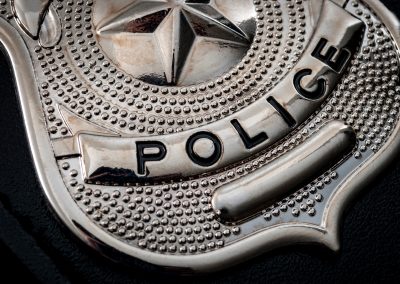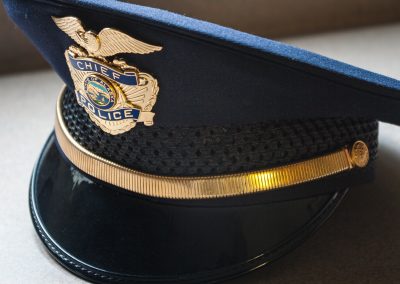What cops hate more than anything else—at least when it comes to training—is being assigned to sit in a class knowing full-well that the only reason they are there is to check a box in order to prove they attended.
Ethics training all too often finds itself in that category.
Why?
Because ethical behavior doesn’t seem to matter anymore.
Oh yeah, generally, people say and believe that ethics matter. Many who have mass media platforms regularly point fingers and scream “Lie!” at their political opponents and/or people who hold opposing views. And if an activist point need be made, the pundits and analysts always rush to appear as though they are standing firm on the moral and ethical high ground.
A Sullied Record
In law enforcement, we have to admit, we’ve had historical issues with unethical behavior and corrupt cultures, at least episodically we have.
From the whole Serpico period in the NYPD during the 1960s and 70s; the Joe Burge torture disgrace in the Chicago PD through the 70s and 80s; to the LAPD Rampart scandal in the CRASH unit of the LAPD in the late 1990s (just to name a few), our profession has definitely contributed to those who want proof of unethical and corrupt behavior in our ranks.
I have been asked many times to teach a course or a segment of a course addressing ethics. After the request I always ask the particular administrator why they want training in ethics. The responses are usually along the lines of: “One of our line level personnel [took a free cup of coffee, got drunk at a ball game, fudged some hours on an overtime slip, called in sick to play golf, was found sleeping in his/her squad car …] blah, blah.”
I add the “blah, blah” not to dismiss the infractions, but rather to point out two things:
- None of the above are ethics violations, they are rules violations.
- I’ve never had a chief, mayor or sheriff say: “We’re wildly unethical here at the top of the food chain, it’s bleeding down into the ranks, and we need help finding our moral compass.”
Politics and Leadership
Plenty of the leaders in police organizations walk the ethical walk—hopefully the majority. But a common theme of complaint among street cops—all around this country, and I do this for a living—is the double standards they see, on an all-too-frequent basis, at the top of their organizational food chains.
I bring this up now because I listen to hordes of cops (including mid-level supervisors, directors, chiefs and sheriffs) from all over this country every week, and it seems as if more and more are just plain fed up with the hypocrisy they see coming from the media, their bosses and civilians in political leadership roles.
In their view the real ethical violations are happening above their pay-grade: at the nexus of media and politics—where real power lies.
“The top brass doesn’t care at all about the truth! Keeping their jobs is all they really care about,” said one command officer at a recent seminar. “So why would the guys care about the mission of the organization? If they avoid proactivity they are left alone. If they go out and try to chase bad guys they risk putting themselves in the spotlight, facing political wrath and losing their jobs.”
He continued, “Listen, I’m not stupid. I’ve been around for over 20 years and I know the chiefs have to play a political game. But throwing cops under the bus at the first sign of trouble is unacceptable. Then they want to initiate ethics training because the media presents a totally false narrative of who we really are? That’s nuts! And the chief knows it. But he folds to people with political agendas. He just doesn’t see what it’s doing to the overall morale. Or maybe he does, but just doesn’t care.”
Another supervisor joined in the discussion.
“We have bosses that are in love with power so they use it to settle scores with those they don’t like. Not a hint of ethical behavior while they look for the smallest infractions in order to punish. My lieutenant told me that if I don’t suspend at least one officer a year then I’m not doing my job. This is the same guy that preaches ethics in our department! It’s pathetic. No one trusts him, but he doesn’t care.”
What drives the average cop nuttier than Aunt Sally’s Christmas fruitcake is when their own bosses don’t walk their ethical talk. In addition, many politicians—and make no mistake about it, they are the real bosses—display disingenuous and unethical conduct all the time and that behavior sets the standard for the conduct of everyone who works under that administration.
If politicians lie, avoid answering questions, and refuse to ever take responsibility for their own actions, why in God’s name would the people at the line level in government jobs think that they would have to?
Consider this: When was the last time you saw a politician take responsibility for unethical behavior prior to a mountain of evidence documenting their misdeeds being exposed in the media?
Exactly. It was the same time you saw that unicorn playing cards with the Tooth Fairy.
Let’s take it one step further. How often, even after evidence is revealed, and videos of that particular person saying something is uncovered, do you see them still refuse to take responsibility, deny what you saw and heard is what you actually saw and heard and/or lie about the lie?
But, if a police officer finds himself at the center of a controversy, even if he/she didn’t actually do anything wrong, the hounds from hell are unleashed. … Many cops are feeling abandoned.
This political blather and hypocritical behavior just doesn’t compute to the rank-and-file. What they passionately believe is that those at the top are more concerned about keeping their own jobs and preserving power than doing the right thing.
In too many cases it’s “ethics be damned, expedient political correctness is all that really matters.”
A Few Examples
Following are a few examples of what I’m talking about.
1. Last year a police officer in Hearne, Texas, shot and killed a 93-year-old woman. He was fired four days after the incident—four days! Why? The Texas Rangers hadn’t even had a chance to start the investigation.
2. A chief in the middle of a media firestorm over an officer pulling a gun at a pool party, almost immediately said publicly that the officer’s behavior was “indefensible.” Again, no investigation had been complete, not at all.
3. Baltimore Mayor Stephanie Rawlings-Blake referred to burglars (looters), arsonists and people who assaulted hundreds of police officers with rocks and bottles as “misguided young people” and then said that they “also need our support.”
At the same time she impugned the entire Baltimore Police Department by saying that she would “continue to be relentless in changing the culture” of the agency while talking about corrupt, brutal and racist Baltimore cops. Then she asked the Department of Justice to investigate her police department.
So the cops in Baltimore are doing less. Consequently their ethics and values are being questioned because they refuse to be proactive. Meanwhile their chief, who tried to explain how his officers were confused about their purpose and lack of support, was fired. Why do you think that happened?
Ethics?
Conclusion
The true measure of ethical leadership is when those leaders make the mission of the organization and the lives and careers of their officers more important than their own.
To me the biggest violation of ethics is when leaders wield power to settle scores, fail to take responsibility, and display obvious hypocrisy.
Remember this, bosses: Ethics absolutely begins at the top.
And by the way, the word ethics isn’t a noun, it’s a verb.










0 Comments